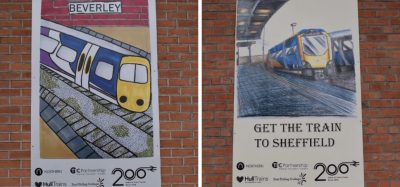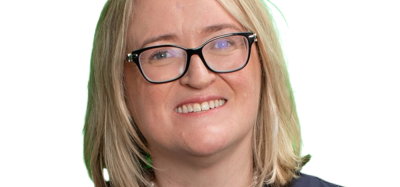The people behind the wheel: Tricia Williams’ story, Northern
Posted: 31 July 2024 | Tricia Williams - Northern | No comments yet
For the latest instalment of Global Railway Review’s ‘The people behind the wheel’ series, Tricia Williams, Managing Director of Northern, shares her experiences in leading one of the largest train operating companies outside London, her insights into the evolving rail industry and her vision for driving innovation and inclusivity within the sector.
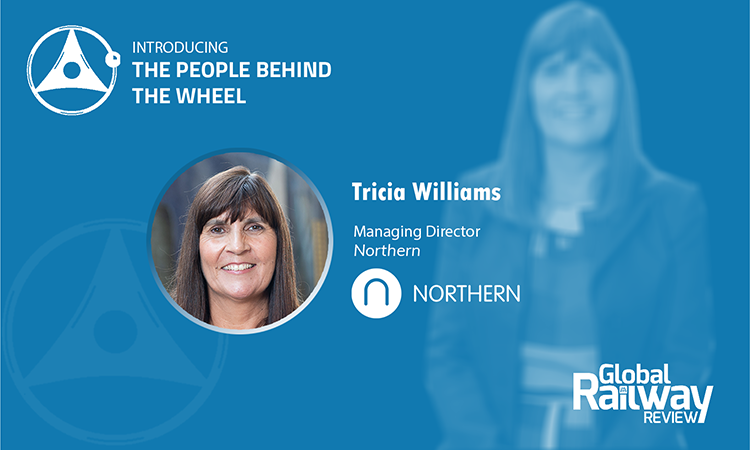

Can you tell us a bit more about your new role at Northern?
I joined Northern in 2020 as Chief Operating Officer and I’ve since moved into the role of Managing Director. It’s not quite been four years, but I feel it’s been enough time to really get to know the operation, the role that Northern has in the wider community and economy, and for me to get to know the people as well.
Northern is the second largest train operator in the UK. We run 2,500 services every day and we also maintain our own trains. We have five train care centres right across the north and we also maintain other people’s trains at those care centres as well.
My role is about leadership. This includes liaison with our stakeholders. We have many new MPs right across the patch and some mayors who’ve been re-elected. They’ve all got their priorities for us, so it’s really making sure that I understand what they want from us. We have 7,000 people in Northern. My job is to lead in terms of behaviours, strategy and direction, so that we’re all trying to achieve the same things.
Has a career in rail changed your perception of the industry as a whole?
Before I joined rail, I had a perception of it being very male dominated, because it’s a very traditional industry. I had absolutely no idea of the diversity of roles within the rail industry”
Absolutely. Before I joined rail, I had a perception of it being very male dominated, because it’s a very traditional industry. I had absolutely no idea of the diversity of roles within the rail industry and it’s really opened my mind to what fantastic careers there are.
The professionalism, the attention to detail, how safety conscious people are, is remarkable. I’ve worked in heavily regulated safety conscious environments before, but rail really is up there. Equally, the opportunity that rail affords to the wider economy and communities. We connect people with opportunities, whether that’s leisure or education or jobs and so on. Being part of something like that is really purposeful.
So yes, it has absolutely opened my eyes to opportunity that rail brings to the economy, but also to the people within rail. I keep saying it’s the best kept secret actually.
Another thing that really struck me when I joined the industry, was you’re welcomed in as part of the railway family. And that’s very special.
It’s got its problems, don’t get me wrong, I think we do still need to have more diversity in rail. We need to be more accessible. But as MD, I’ve got three priorities which all underpin the performance that we deliver. These are people, transformation and purpose.
So, when I talk about people, I mean our customers and our colleagues. And for me, it’s about making sure the railway is as inclusive as it possibly can be for those people accessing our services and also for the people who want careers with us. We do fantastic work with apprentices, but there is still more we can do, and that’s a real priority.
The second is around transformation and change. There’s going to be £20 billion at least spent on infrastructure in the north in the next 10 years. This will disrupt our operations, so we have to be brilliant at being able to manage change and deliver change ourselves.
The third area is around purpose. This is making sure that we never forget we’re here to deliver a service to our customers. My job and my priority is to ensure that people don’t forget that and we constantly think about the performance we’re delivering to our customers that benefits the wider economy and communities.
It’s such a brilliant industry to be able to deliver value socially, economically and environmentally. I constantly talk about this because it’s a real engagement tool for our colleagues. It helps them understand their part in the railway as a whole.
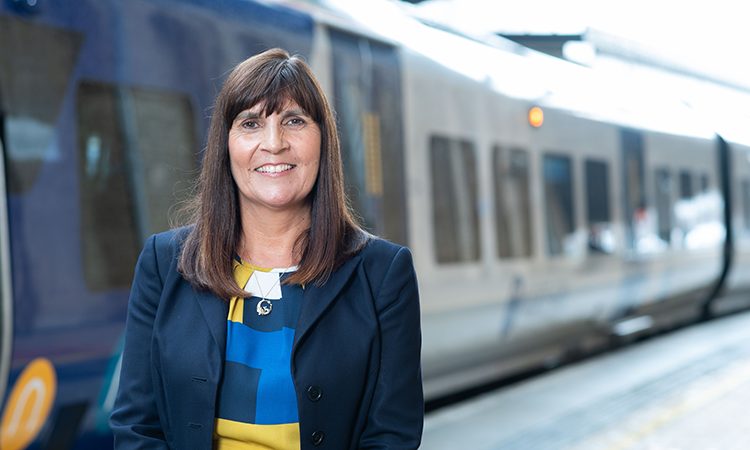

Credit: Northern
What would be the top three highlights of your career in the rail industry to date?
The first would be the timetable change that we did in December 2022. I know I’m going back a couple of years, but when I started in Northern, it had been taken over by the government six months earlier. So the period running up to that was quite challenging for the team because in effect they were part of a team that had been taken into the operator of last resort. They still had a lot of issues that had arisen from the 2018 timetable. I think it’s fair to say a lot of the blame for that fell on Northern as the face for the customer, when actually it wasn’t just Northern who contributed to that issue. Then COVID-19 came and people were lacking in confidence in Northern.
It was wonderful being part of the December 2022 timetable change, which went really, really well. It was a big structural change and part of something called the Manchester Recovery Task Force. It made a huge difference to how the timetable was laid out. Seeing how the team rose to that challenge and came through that working really well together, was a massive highlight.
I would say the second was launching our fifth train care centre, Hull Botanic Gardens. It was traditionally a railway asset, but now it’s set up so that we can maintain our 170 fleet there and who knows what other fleets we can maintain there in the future. We’ve built accommodation for the staff instead of Portacabins, a facility just for women and its really well equipped.
We’ve brought in some great new people combined with some great people we already had. There are women at all levels and it’s a really modern, go getting team. It was an honour being part of seeing that open and how proud the team are to work there. It’s now acting as the blueprint for how we want to do engineering across our other train care centres.
Finally, I think the third one was being appointed as MD.
When looking into a new career or getting a first job, it can be a daunting experience. Keeping that in mind, what key pieces of advice would you give to someone who is interested in a career in rail?
Push past any doubts that you have, because I’ve seen a recognition of the value that you can bring if you have maybe a different background or you’ve got different experience”
I would say go for it. There are a lot of people in rail who’ve been here for decades and that can be quite daunting. I had the pleasure yesterday of sending a note of thanks and congratulations to somebody who’s worked here for 50 years. I’m aware of somebody who’s worked here for 60 years as of next year, so that can be quite overwhelming. I think that’s partly why the industry is not as diverse as it could be. It’s because people love it, they’ve come here early on in their career and they’ve stayed. So, it will take time to change the face.
That doesn’t take away from the fact that there’s some fantastic people who work in rail. I would say push past any doubts that you have, because I’ve seen a recognition of the value that you can bring if you have maybe a different background or you’ve got different experience. Rail values that diversity of thought.
I think regardless of the discipline that you’re in, just go for it and when you get into rail, focus on the customer and focus on the whole system.
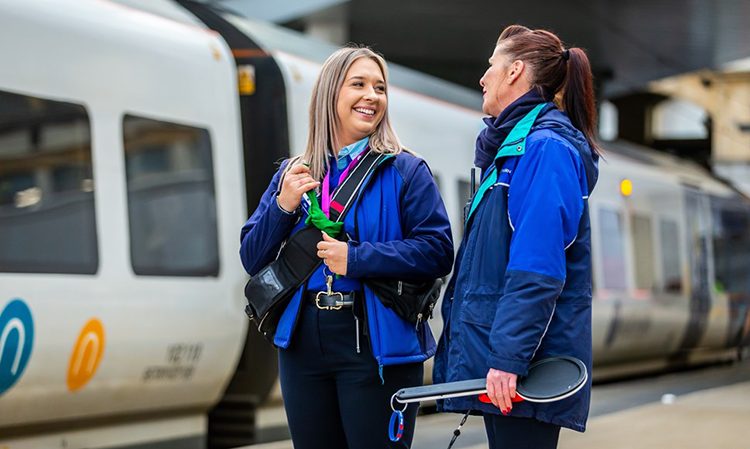

Credit: Northern
How do you see innovation shaping your role and the rail industry in the next five years?
There’s loads of room for innovation in the rail industry. In terms of my role and other people’s roles I think there’s what people would call invention and innovation. I’ve just been in a session where we had a presentation on the use of technology in our training and how Network Rail, for example, could use the LIDAR equipment that we’re putting on to help them with things like vegetation management. It’s the same technology that was used by NASA to map the surface of the moon! It would help Network Rail understand its geotechnical engineers, understand movement of sites that might be at risk of a landslide for example. I would absolutely say that there is room for us as an industry to look at how those technologies could be used to help different parts of the railway.
We should also look beyond innovation in the rail industry itself. There could be a technology or solution that somebody’s using elsewhere that could benefit the railway”
We should also look beyond innovation in the rail industry itself. There could be a technology or solution that somebody’s using elsewhere that could benefit the railway. We have an over dependency on paper, maybe that’s just Northern, but there’s definitely room for better use of more modern technology to transfer data quicker, make decisions quicker, to the benefit of our customers.
In addition, there’s some really exciting work on simulators, for example. Traditionally, our drivers and conductors start a course with us and are taught in the classroom. They get a pile of paper in front of them with all the manuals and information that they need to learn. After this, they go out and get experience either on the train or at the station.
We’re having some simulators built now for us that will modernise our training, truly transform it in fact. This means that our future conductors and drivers can get a real sense of what it’s like to work or drive a train without the need first to physically go on a train. So, it reduces risks and accelerates that learning using tried and tested technology.
Autumn brings a potentially serious risk for train companies. Slippery tracks can cause delays and potentially cancellations. Here, we have been leading the way with some real innovation. Water-Trak is one of our technologies where powerful jets of water are sprayed onto the track in front of the wheel during slippery conditions, which helps braking capability. So that’s been rolled out to one of our fleet types ready for this autumn and there’s cryogenic treatments that we’re also exploring. This side of innovation and invention is really exciting.
Finally, in an ideal world, how do you envision the future of rail evolving?
I think you’ll see a different customer base, the more and more that we make rail accessible to people. We’ll also see different people working for rail, changing that traditional face over time”
The track and train are so separate, and you have to work really, really hard in partnerships to bring those two things together. Even if we share the same office, we’re two separate companies.
It’s the same with other train operating companies. There is fragmentation between train operating companies as well as fragmentation between track and trains. This whole reform to bring track and train closer together has to be better for the customer, because I think it will help focus all that energy on trying to work together. We could deliver a better service for all customers so that’s really exciting.
Of course, an ideal world is going green. There’s real opportunity for rail to shout about its green credentials. Without doubt, if you get people out of cars and onto the trains, it’s better for the environment. We do have a heavy reliance on diesel trains at the moment, but over time, battery technology and more electrification will make rail even greener.
In addition, I think you’ll see a different customer base, the more and more that we make rail accessible to people. We’ll also see different people working for rail, changing that traditional face over time to better represent the customers and the communities that we serve.





